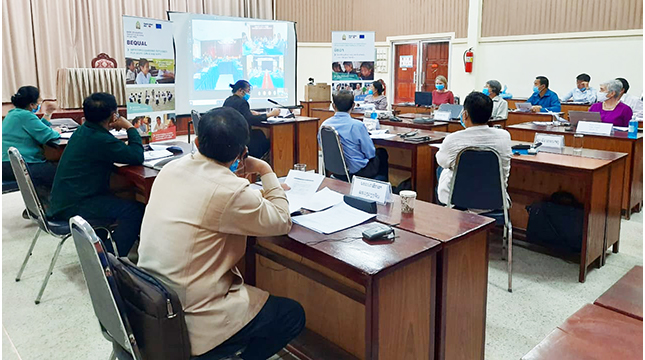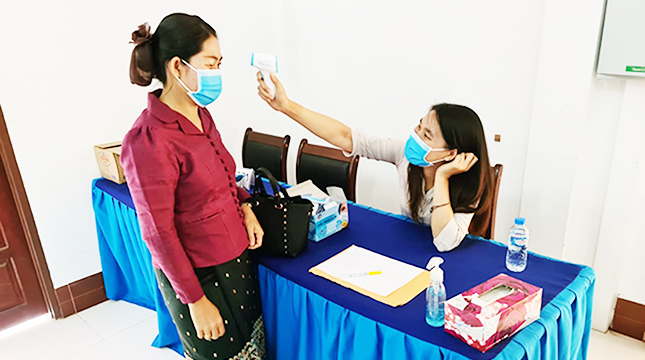The BEQUAL Technical Meeting was organized as a hybrid online and in-person event in four different locations simultaneously to ensure social distancing, reduce travelling and other COVID-19 prevention measures
Held simultaneously in Vientiane, Oudomxay, Bolikhamxay and Pakse, the BEQUAL Technical meeting was chaired by Madam Khampaseuth Kitignavong, Deputy Director General, Department of Planning, MoES and co-chaired online by Anna Dyason, First Secretary, Australian Embassy. Basic Education and Quality in Lao PDR (BEQUAL) is a program led by the Ministry of Education and Sports with the support of Australian Government and European Union that was launched in 2015. “The technical meeting is very important as we approach the end of BEQUAL Phase I” said Madam Khampaseuth. “I would like to thank Australia to continue supporting the reform of the primary curriculum, which is part of the 9th Education and Sports Sector Development Plan (2021-2025)”. “Australia reconfirms its commitment to supporting education development in Lao PDR” said Anna Dyason. “And we hope BEQUAL can help to improve teaching and learning in disadvantaged areas and particularly for girls, ethnic children and children with a disability.” The meeting this year has been designed to comply with the requirements for the prevention of the spread of COVID-19 and ensure social distancing with 14 to 22 persons per venue. Sub-groups of participants from concerned MoES departments, Provincial Educations and Sports Services, Teacher Training Colleges, European Union, development partners and technical advisors from the BEQUAL team gathered at one of the four venues around the country, based on ease of access. The four venues were linked via online video conference and nominated meeting co-chairs and facilitators at each location ensured each co-located group fully participated in the meeting discussions.
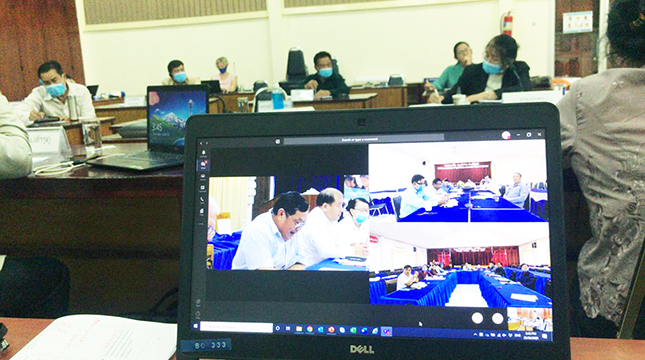
Some participants joined online from Australia, including the meeting Co-Chair Anna Dyason, and representatives from ACER who presented an update on the Teacher Evaluation Study. The objective of the meeting was to review progress of the implementation of BEQUAL activities over the last six-months and recommend next steps for the program over the 2020-2021 school year. The meeting was marked this year by the special context of the COVID-19 crisis and the end of the Phase I of the BEQUAL program (2015-2020). The participants discussed the impacts of COVID-19 on implementation plans and planned measures to safeguard program stakeholders over the next implementation period.
They stressed that the program was well-prepared and responded quickly to COVID-19 challenges. Being well prepared, BEQUAL continued to deliver expected outcomes throughout the lockdown, with minimal delays vs initially planned timeframes: Grade 2 materials for schools have been delivered to the 148 districts by May 25th, teaching and training materials for teachers have been delivered to DESBs by June 10th, the cascade training of all Grade 2 teachers was re-organized to follow COVID-19 prevention measures and commenced in early June starting with the Master Trainer training.
Grade 3 curriculum writing made progress thanks to the switch to online workshops. “I would like to congratulate the Ministry and BEQUAL teams for making good progress to program implementation despite the impacts of COVID-19 pandemic and lockdown” said Anna Dyason. “With joint effort, the packing of Grade 2 materials was fast-tracked and materials were dispatched as soon as the movement restrictions have been eased. The materials have now been delivered to the 148 District Education and Sports Bureau across the country.” “These last months, our work was complicated because of the COVID-19 crisis and I would like to congratulate the Ministry and BEQUAL teams who launched the Grade 2 training of trainers this month with a new organization to follow COVID-19 prevention measures” said Madam Khampaseuth.
The meeting participants re-affirmed BEQUAL’s goal to help more girls and boys of primary school-age, particularly those experiencing disadvantage to improve their learning outcomes, especially literacy. They agreed on recommendations to put forward to the BEQUAL Steering Committee regarding the first year of the Phase 2 of the program.
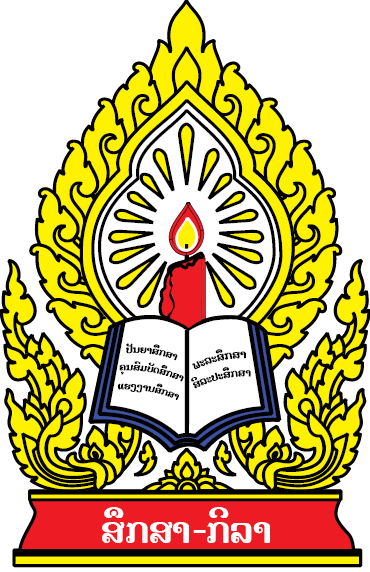
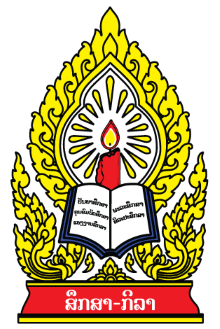


 ພາສາລາວ
ພາສາລາວ
